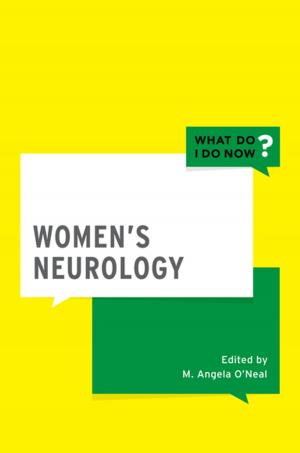Pharmaceutical Freedom
Why Patients Have a Right to Self Medicate
Nonfiction, Reference & Language, Law, Health, Health & Well Being, Medical, Reference, Ethics, Religion & Spirituality, Philosophy, Ethics & Moral Philosophy| Author: | Jessica Flanigan | ISBN: | 9780190684563 |
| Publisher: | Oxford University Press | Publication: | July 3, 2017 |
| Imprint: | Oxford University Press | Language: | English |
| Author: | Jessica Flanigan |
| ISBN: | 9780190684563 |
| Publisher: | Oxford University Press |
| Publication: | July 3, 2017 |
| Imprint: | Oxford University Press |
| Language: | English |
If a competent adult refuses medical treatment, physicians and public officials must respect her decision. Coercive medical paternalism is a clear violation of the doctrine of informed consent, which protects patients' rights to make medical decisions even if a patient's choice endangers her health. The same reasons for rejecting medical paternalism in the doctor's office are also reasons to reject medical paternalism at the pharmacy, yet coercive medical paternalism persists in the form of premarket approval policies and prescription requirements for pharmaceuticals. In Pharmaceutical Freedom Jessica Flanigan defends patients' rights of self-medication. Flanigan argues that public officials should certify drugs instead of enforcing prohibitive pharmaceutical policies that disrespect people's rights to make intimate medical decisions and prevent patients from accessing potentially beneficial new therapies. This argument has revisionary implications for important and timely debates about medical paternalism, recreational drug legalization, human enhancement, prescription drug prices, physician assisted suicide, and pharmaceutical marketing. The need for reform is especially urgent as medical treatment becomes increasingly personalized and patients advocate for the right to try. The doctrine of informed consent revolutionized medicine in the twentieth century by empowering patients to make treatment decisions. Rights of self-medication are the next step.
If a competent adult refuses medical treatment, physicians and public officials must respect her decision. Coercive medical paternalism is a clear violation of the doctrine of informed consent, which protects patients' rights to make medical decisions even if a patient's choice endangers her health. The same reasons for rejecting medical paternalism in the doctor's office are also reasons to reject medical paternalism at the pharmacy, yet coercive medical paternalism persists in the form of premarket approval policies and prescription requirements for pharmaceuticals. In Pharmaceutical Freedom Jessica Flanigan defends patients' rights of self-medication. Flanigan argues that public officials should certify drugs instead of enforcing prohibitive pharmaceutical policies that disrespect people's rights to make intimate medical decisions and prevent patients from accessing potentially beneficial new therapies. This argument has revisionary implications for important and timely debates about medical paternalism, recreational drug legalization, human enhancement, prescription drug prices, physician assisted suicide, and pharmaceutical marketing. The need for reform is especially urgent as medical treatment becomes increasingly personalized and patients advocate for the right to try. The doctrine of informed consent revolutionized medicine in the twentieth century by empowering patients to make treatment decisions. Rights of self-medication are the next step.















